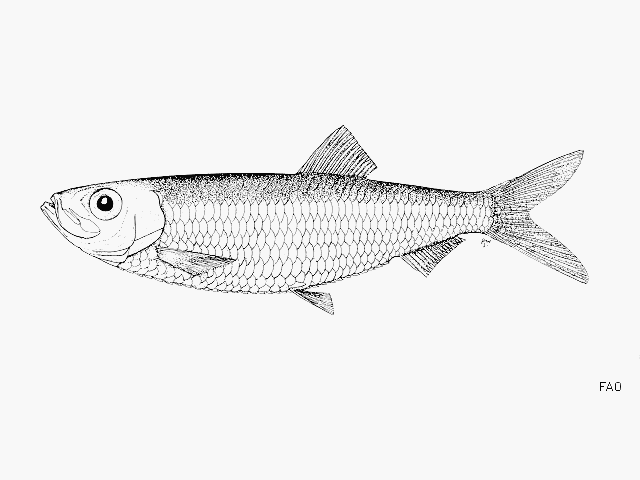| Clupeidae (Herrings, shads, sardines, menhadens) |
| 13 cm SL (male/unsexed) |
|
pelagic-neritic; marine; depth range 28 - 110 m |
| Southwest Pacific: New Zealand. |
|
Dorsal spines (total): 0-0; Dorsal soft rays (total): 13-21; Anal spines: 0-0; Anal soft rays: 12-23; Vertebrae: 43-47. Gill cover without bony radiating striae; tooth plate on tongue narrow, pointed at each end, its width about 4 or 5 times in length, lateral teeth moderate; scales without fine striae on exposed posterior part; back green-gray when fresh. Pterotic bulla absent. Last two anal rays normal. |
| A schooling species found in coastal waters, from beaches down to 110 m or more. Has an apparently long spawning season (July to January) around the South Island, but not a fractional spawner. Eggs are present in mid-summer near Clutha River mouth (but samples may have included S. antipodum). More data needed. |
|
Least Concern (LC); Date assessed: 28 February 2017 Ref. (130435)
|
| harmless |
Source and more info: www.fishbase.org. For personal, classroom, and other internal use only. Not for publication.
